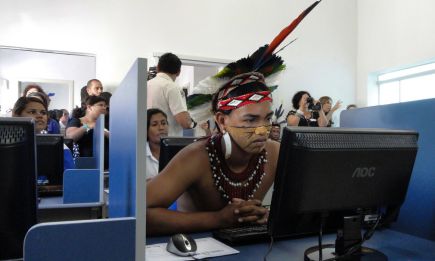MOOCs against poverty

MOOCs are staggeringly popular, but the added value for higher education in developed countries is not yet clear for everyone involved. For many MOOCs are a new mean to make education more efficient, and above all, cheaper. The low completion rate doesn’t contribute to its popularity. However, there is a whole other side of MOOCs that might even more important. MOOCs could be the new form of international development work.
Teaching the developing world
“Coursera is privileged to host an incredibly diverse community of students, from all represented countries in the world, who come together to learn about subjects ranging from Computer Science to Roman History to Social Psychology. With 40% of our students coming from developing countries, we feel strongly about the potential to promote international development through educational opportunities on Coursera,” is written on the Coursera blog.
The partnership is part of The World Bank’s new Open Learning Campus initiative that aims to give policymakers, on-the-ground practitioners and other interested parties access to valuable, practical knowledge on development strategies and challenges. The first MOOC offered by Coursera and The World Bank is ‘Turn Down the Heat: Why a 4°C Warmer World Must be Avoided’ and starts in January 2014.
“Together with the World Bank Group, we hope to democratize access to knowledge critical for global development and poverty alleviation, while exploring the possibilities of using technology to address challenges in developing countries.
Meest Gelezen
Wederom intimidatie van journalisten door universiteit, nu in Delft
‘Burgerschapsonderwijs moet ook verplicht worden in hbo en wo’
Raad van State: laat taaltoets nog niet gelden voor hbo-opleidingen
Vrouwen houden universiteit draaiende, maar krijgen daarvoor geen waardering
Extra geld voor bètafaculteiten is daar nooit terechtgekomen


